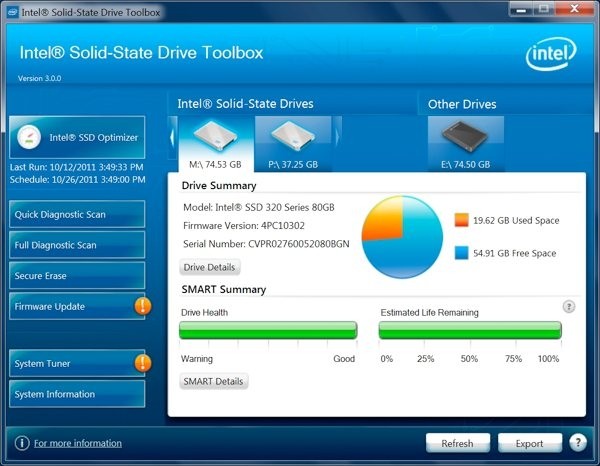Intel has released a new version of its SSD Toolbox to help owners of their flash-based drives optimize and keep them running in out-of-the-box condition. The new Intel SSD Toolbox 3.0 brings a redesigned user interface and includes features like SMART, Summary Drive Health and Estimated Life Remaining bars, used/unused capacity pie chart, diagnostics, system information summary and contextual help that integrates one-click same-page help pointers.
As with previous versions, the free utility provides a tuner that makes system configuration suggestions for optimal SSD performance on the user's PC. It will detect and determine if features like Superfetch, ReadyBoost, and Prefetch should be disabled. These are designed to cache data into RAM or rearrange it on disk to help Windows 7 preload files and launch programs faster. They were developed with HDDs in mind, however, and since SSDs behave differently from HDDs they are not really needed to improve performance and can even waste write cycles reducing drive life time.

Intel's SSD Toolbox 3.0 supports Secure Erase and can now also perform secure erase of a secondary Intel SSD, ensuring all data is cleaned from the drive before handing it to someone else or installing it on another system.
In addition, it includes the ability to update firmware under Windows instead of DOS and now comes in 11 languages. You can download the Intel SSD Toolbox 3.0 here and read a fact sheet with more information here (PDF).
https://www.techspot.com/news/46046-intel-ssd-toolbox-30-makes-managing-intel-ssds-easier.html